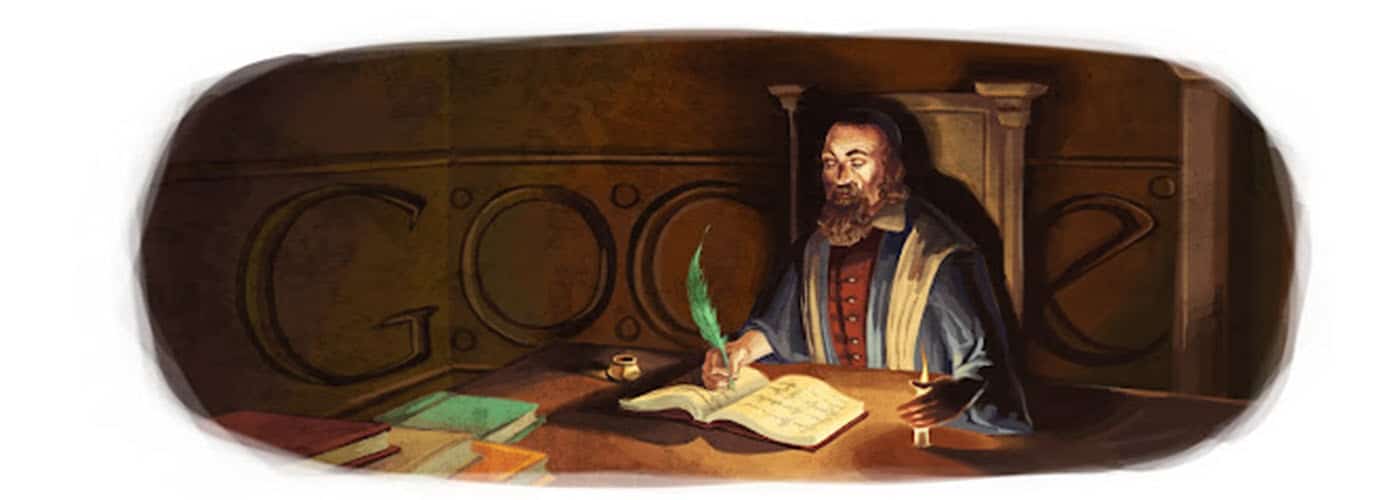Amos Komenský: A Pioneer of Modern Education

Image Courtesy: Google Doodle
Jan Amos Komensky (28 March 1592 – 15 November 1670) was a Czech philosopher, pedagogue and theologian who is considered the father of modern education.
Life and Career
Komensky was born in Nivnice, Moravia (now part of the Czech Republic) on 28 March 1592. He grew up in a Protestant family. He was educated at the Latin school in Přerov and later studied at the University of Herborn in Germany, where he became interested in the ideas of the Dutch theologian Johannes Amos Comenius. After completing his studies, Komensky became a teacher and served as rector of the Latin school in Přerov from 1614 to 1618. He later held teaching positions in other cities, including Fulnek and Leszno, and in 1631 he was appointed bishop of the Unity of the Brethren, a Protestant denomination.
Komensky’s most famous work is his book “Didactica Magna,” or “The Great Didactic,” which he wrote in the 1630s. In this book, he outlined his ideas for a universal system of education that would be accessible to all children, regardless of their social status or background. Komensky’s educational philosophy emphasized the importance of active learning, experiential education, and the use of visual aids to help children understand complex ideas. He also believed that education should be grounded in a love of nature and a reverence for the natural world.
In addition to his contributions to education, Komensky was also a prolific writer on a wide range of topics, including theology, politics, and philosophy. He wrote in several languages, including Latin, Czech, and German, and his works were widely read and influential in his lifetime. Komensky’s life was marked by political turmoil and religious conflict, and he was forced to flee his homeland several times due to persecution of Protestants. He spent much of his later years in exile, living in Sweden, Poland, and the Netherlands before returning to his homeland in 1650.
Despite the challenges he faced, Komensky remained committed to his vision of a more just and humane society, and his legacy as a visionary educator and thinker continues to inspire people around the world today. He died on 15 November 1670 in Amsterdam, Netherlands at an age of 78.
Award and Legacy
Jan Amos Komensky, also known as Comenius, left a lasting legacy in the fields of education, philosophy, and theology. His ideas and writings have influenced generations of thinkers and educators, and his contributions to these fields have been recognized with several awards and honors.
Here are some examples of the awards and honors that Jan Amos Komensky has received:
- UNESCO honors Comenius: In 1992, UNESCO declared the 350th anniversary of Komensky’s death to be “Comenius Year.” The organization honored him for his contributions to education and his efforts to promote peace and understanding among nations.
- The Comenius Medal: The Comenius Medal is a prestigious award presented by the Czech Republic to individuals who have made significant contributions to education, science, or culture. The medal was first awarded in 1992, on the 350th anniversary of Komensky’s death.
- Comenius University in Bratislava: Comenius University, located in Bratislava, Slovakia, is named after Jan Amos Komensky. The university was founded in 1919 and is one of the oldest and largest universities in Slovakia.
- Comenius Foundation: The Comenius Foundation is a non-profit organization based in the Czech Republic that promotes education and supports research into the life and work of Jan Amos Komensky.
- International Comenius Foundation: The International Comenius Foundation is a non-profit organization based in the Netherlands that promotes international cooperation and understanding through education. The foundation is named in honor of Jan Amos Komensky.
Jan Amos Komensky’s legacy as an educator and thinker has been significant and enduring. His ideas about education, which emphasized the importance of experiential learning and the use of visual aids, have influenced generations of educators. His vision of a more just and humane society, based on mutual understanding and respect, continues to inspire people around the world today. On 28 March 2010, Google celebrated Jan Amos Komensky’s 418th Birthday with a doodle.
Observer Voice is the one stop site for National, International news, Sports, Editor’s Choice, Art/culture contents, Quotes and much more. We also cover historical contents. Historical contents includes World History, Indian History, and what happened today. The website also covers Entertainment across the India and World.
Follow Us on Twitter, Instagram, Facebook, & LinkedIn

